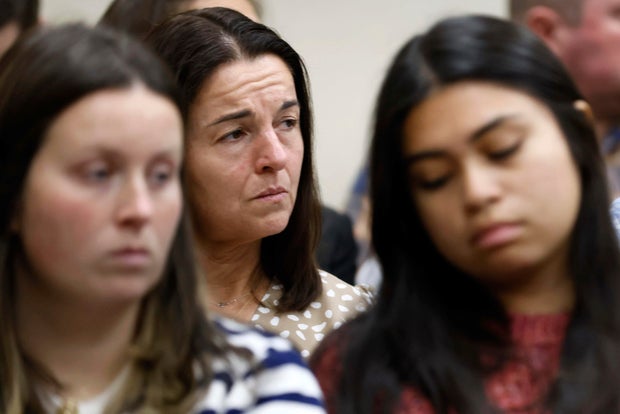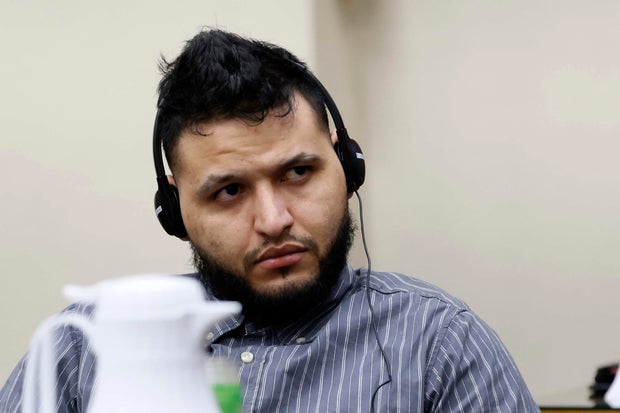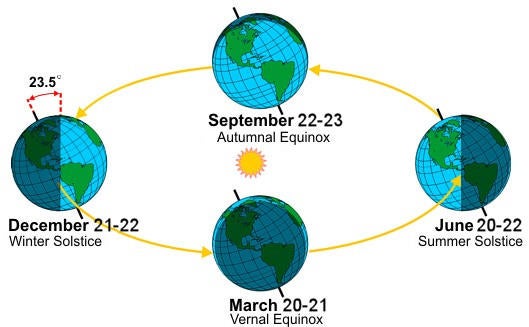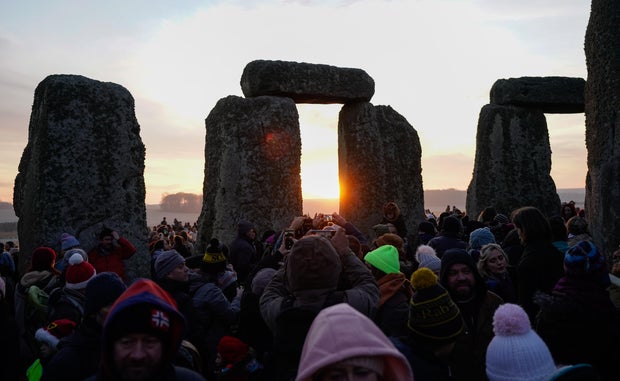CBS News
Man convicted of murder in death of Laken Riley, Georgia nursing student killed on jogging trail

A judge has convicted the man on trial for the killing of Laken Riley, a nursing student in Georgia whose death in February shook the college town where she studied, as well as the country.
Jose Ibarra, 26, was found guilty of murder and other charges related to Riley’s death. Ibarra, an undocumented Venezuelan immigrant, entered the United States illegally in 2022, officials said, but he was allowed to remain in the country to pursue his immigration case. His status helped bring the national debate over border laws to a boiling point earlier this year, as prominent Republicans, including President-elect Donald Trump, blamed President Biden’s policies for Riley’s death.
ELIJAH NOUVELAGE/AFP via Getty Images
The decision by Athens-Clarke County Superior Court Judge H. Patrick Haggard ended a string of hearings that began last week. Ibarra waived his right to a jury trial after pleading not guilty to a 10-count indictment brought against him in the wake of Riley’s killing, which meant the case would be heard and decided solely by the judge. He also declined to testify during the trial.
The state had charged Ibarra with one count of malice murder, three counts of felony murder and one count each of kidnapping, aggravated assault, aggravated battery, hindering an emergency telephone call, tampering with evidence, and being a “peeping Tom.” That final charge stemmed from prosecutors’ allegation that Ibarra peered into the window of an apartment in a university residential building on the day Riley was murdered. Prosecutors said he was “hunting for females on the University of Georgia’s campus” when he encountered Riley.
Although prosecutors did not seek the death penalty in this case, they said in court documents that they intended to push for a sentence of life in prison without the possibility of parole.
Riley was found dead on Feb. 22 in a wooded part of the University of Georgia campus in Athens, where she was enrolled in the Augusta University College of Nursing. The 22-year-old had gone for a run that morning through the school’s intramural fields, which was routine for her, and a concerned friend called University of Georgia police at around noon once Riley failed to return. She often talked to her mother on the phone while out running in the mornings, so when Riley’s friends and family did not hear from her, they worried something was wrong.
Riley’s mother, Allyson Phillips, called and texted her daughter several times after missing an initial call from Riley just after 9 a.m., according to logs and messages pulled from the student’s phone and shown in court Tuesday, as the state’s case wound down. Phillips and other family members continued to reach out to Riley for several hours when she did not reply.
Phillips cried at the Tuesday hearing as her text messages were read aloud on the stand by Georgia Police Sgt. Sophie Raboud, one of the lead investigators in Riley’s case. In one of her final messages to Riley at 11:47 a.m., her mother wrote, “You’re making me nervous not answering while you’re out running. Are you OK?”
Riley’s mother, along with family and friends in attendance, became emotional at a different point in Raboud’s testimony where she answered questions about the video being played of Riley running the morning of her death.
Miguel Martinez-Jimenez / Atlanta Journal-Constitution via AP
Ibarra was arrested the following day and booked without bond in the Athens-Clarke County Jail. Police have said Riley’s killing appeared to be a random attack. But the indictment returned by a Georgia grand jury in May detailed a gruesome confrontation in which Ibarra allegedly asphyxiated the student, hit her over the head with a rock to the point of disfiguring her skull, and pulled up her clothing, intending to rape her.
In court, attorneys for the state also described a disturbing scene. Prosecutor Sheila Ross said Friday that Ibarra killed Riley violently after a prolonged struggle.
“When Laken Riley refused to be his rape victim, he bashed her skull in with a rock repeatedly,” Ross told the judge. She said evidence — including surveillance footage, traces of Ibarra’s DNA under Riley’s fingernails, and his thumbprint left behind on her phone screen — would show the student “fought for her life, for her dignity” over almost 20 minutes.
Data from Riley’s watch indicated she stopped suddenly in the middle of her run at around 9:10 a.m. the day she died and called 911 about a minute later. The watch showed Riley’s heart was still beating until 9:28 a.m., Ross said.
Ibarra’s defense attorney, Dustin Kirby, had argued the prosecution’s evidence against his client was circumstantial and did not prove his guilt. Ibarra has appeared in court with shackles around his ankles and headphones to follow a translation of the trial proceedings in Spanish.
Miguel Martinez/Atlanta Journal-Constitution via AP, Pool
“The evidence in this case is very good that Laken Riley was murdered,” Kirby said. Still, the defense has tried to challenge the strength of the prosecution’s evidence, saying even the DNA sample may not completely rule out other suspects. Ibarra’s legal team raised questions, for example, about whether one of his brothers could have committed the crime. The defendant’s brother Diego Ibarra worked a shift at the University of Georgia’s dining hall on the day of the murder.
Witness testimony for the prosecution continued into Monday, when an FBI Special Agent James Burnie told the court that electronic location data seemed to place Riley and Ibarra in the same wooded area at the time of her death. GPS coordinates from Riley’s cellphone and smartwatch confirmed her precise location in the area where officers found her body, and pings between Ibarra’s phone and cell towers suggested he was likely in the woods, too, Burnie said.
Prosecutors during that hearing also played a recording for the court of a May phone call between Ibarra’s wife, Layling Franco, and Ibarra while he was in jail. On the call, Ibarra told Franco he had been looking for work at the University of Georgia, and his wife urged him multiple times to tell her the truth about what happened to Riley, FBI specialist Abeisis Ramirez said during his testimony. The recording of their conversation was translated from Spanish for the court.
The jail call was not admitted into evidence in Ibarra’s trial and could not be considered in the case, Judge Haggard announced Tuesday morning.
“After hearing the translations I do find that it was more than contextual, and therefore violates the confrontation clause of the 6th Amendment,” the judge said. The clause protects the rights of an individual accused of a crime to confront witnesses.
contributed to this report.
CBS News
Social Security Fairness Act passes U.S. Senate

Legislation to expand Social Security benefits to millions of Americans passed the U.S. Senate early Saturday and is now headed to the desk of President Joe Biden, who is expected to sign the measure into law.
Senators voted 76-20 for the Social Security Fairness Act, which would eliminate two federal policies that prevent nearly 3 million people, including police officers, firefighters, postal workers, teachers and others with a public pension, from collecting their full Social Security benefits. The legislation has been decades in the making, as the Senate held its first hearings into the policies in 2003.
“The Senate finally corrects a 50-year mistake,” proclaimed Senate Majority Leader Chuck Schumer, a Democrat from New York, after senators approved the legislation at 12:15 a.m. Saturday.
The bill’s passage is “a monumental victory for millions of public service workers who have been denied the full benefits they’ve rightfully earned,” said Shannon Benton, executive director for the Senior Citizens League, which advocates for retirees and which has long pushed for the expansion of Social Security benefits. “This legislation finally restores fairness to the system and ensures the hard work of teachers, first responders and countless public employees is truly recognized.”
The vote came down to the wire, as the Senate looked to wrap up its current session. Senators rejected four amendments and a budgetary point of order late Friday night that would have derailed the measure, given the small window of time left to pass it.
Vice President-elect JD Vance of Ohio was among the 24 Republican senators to join 49 Democrats to advance the measure in an initial procedural vote that took place Wednesday.
“Social Security is a bedrock of our middle class. You pay into it for 40 quarters, you earned it, it should be there when you retire,” Ohio Senator Sherrod Brown, a Democrat who lost his seat in the November election, told the chamber ahead of Wednesday’s vote. “All these workers are asking for is for what they earned.”
What is the Social Security Fairness Act?
The Social Security Fairness Act would repeal two federal policies — the Windfall Elimination Provision (WEP) and the Government Pension Offset (GPO) — that reduce Social Security payments to nearly 3 million retirees.
That includes those who also collect pensions from state and federal jobs that aren’t covered by Social Security, including teachers, police officers and U.S. postal workers. The bill would also end a second provision that reduces Social Security benefits for those workers’ surviving spouses and family members. The WEP impacts about 2 million Social Security beneficiaries and the GPO nearly 800,000 retirees.
The measure, which passed the House in November, had 62 cosponsors when it was introduced in the Senate last year. Yet the bill’s bipartisan support eroded in recent days, with some Republican lawmakers voicing doubts due to its cost. According to the Congressional Budget Office, the proposed legislation would add a projected $195 billion to federal deficits over a decade.
Without Senate approval, the bill’s fate would have ended with the current session of Congress and would have needed to be re-introduced in the next Congress.
CBS News
12/20: CBS Evening News – CBS News

Watch CBS News
Be the first to know
Get browser notifications for breaking news, live events, and exclusive reporting.
CBS News
Saturday is the winter solstice and 2024’s shortest day. Here’s what to know about the official start of winter.

The 2024 winter solstice, the shortest day of the year, happens on Saturday, Dec. 21, in the Northern Hemisphere. The celestial event signifies the first day of winter, astronomically.
What is the winter solstice?
The winter solstice is the day each year that has the shortest period of daylight between sunrise and sunset, and therefore the longest night. It happens when the sun is directly above the Tropic of Capricorn, a line of latitude that circles the globe south of the equator, the National Weather Service explains.
The farther north you are, the shorter the day will be, and in the Arctic Circle, the sun won’t rise at all.
How is the day of the winter solstice determined?
The winter solstice occurs because of the Earth’s tilt as it rotates around the sun.
When the Northern Hemisphere tilts away from the sun, the nights last longer. The longest night happens on the solstice because the hemisphere is in its furthest position from the sun. That occurs each year on Dec. 21 or 22.
This year, it falls on Dec. 21 at 4:21 a.m ET, to be precise.
On the summer solstice, when the northern tilt is closest to the sun, we have the longest day, usually June 20 or 21.
National Weather Service
The solstices are not always exactly on the 21st every year because the earth’s rotation around the sun is 365.25 days, instead of 365 even.
Will days start getting longer after the winter solstice?
Yes. Each day after the solstice, we get one minute more of sunlight. It doesn’t sound like much, but after just two months, or around 60 days, we’ll be seeing about an hour more of sunlight.
When will winter officially be over in 2025?
The meteorological winter ends on March 20, 2025. Then, spring will last until June 20, when the summer solstice arrives.
How is the winter solstice celebrated around the world?
Nations and cultures around the world have celebrated the solstice since ancient times with varying rituals and traditions. The influence of those solstice traditions can still be seen in our celebrations of holidays like Christmas and Hanukkah, Britannica notes.
The ancient Roman Saturnalia festival celebrated the end of the planting season and has close ties with modern-day Christmas. It honored Saturn, the god of harvest and farming. The multiple-day affair had lots of food, games and celebrations. Presents were given to children and the poor, and slaves were allowed to stop working.
Gatherings are held every year at Stonehenge, a monumental circle of massive stones in England that dates back about 5,000 years. The origins of Stonehenge are shrouded in mystery, but it was built to align with the sun on solstice days.
Andrew Matthews/PA Images via Getty Images
The Hopi, a Native American tribe in the northern Arizona area, celebrate the winter solstice with dancing, purification and sometimes gift-giving. A sacred ritual known as the Soyal Ceremony marks the annual milestone.
In Peru, people honor the return of the sun god on the winter solstice. The ancient tradition would be to hold sacrificial ceremonies, but today, people hold mock sacrifices to celebrate. Because Peru is in the Southern Hemisphere, their winter solstice happens in June, when the Northern Hemisphere is marking its summer solstice.
Scandinavia celebrates St. Lucia’s Day, a festival of lights.
The “arrival of winter,” or Dong Zhi, is a Chinese festival where family gathers to celebrate the year so far. Traditional foods include tang yuan, sweet rice balls with a black sesame filling. It’s believed to have its origins in post-harvest celebrations.
Researchers stationed in in Antarctica even have their own traditions, which may include an icy plunge into the polar waters. They celebrate “midwinter” with festive meals, movies and sometimes homemade gifts.












